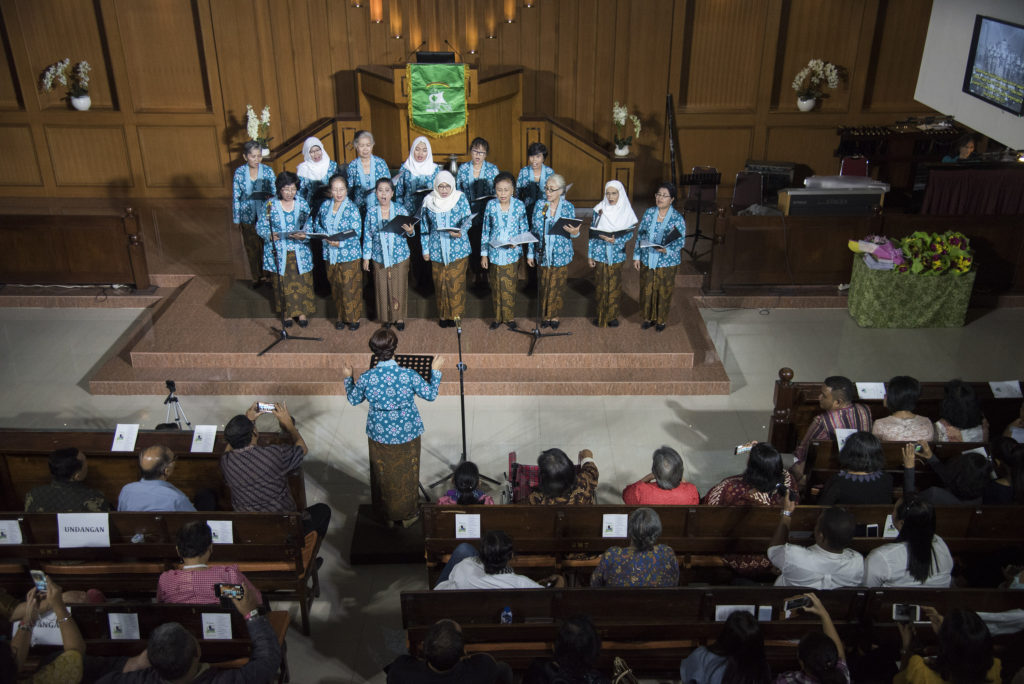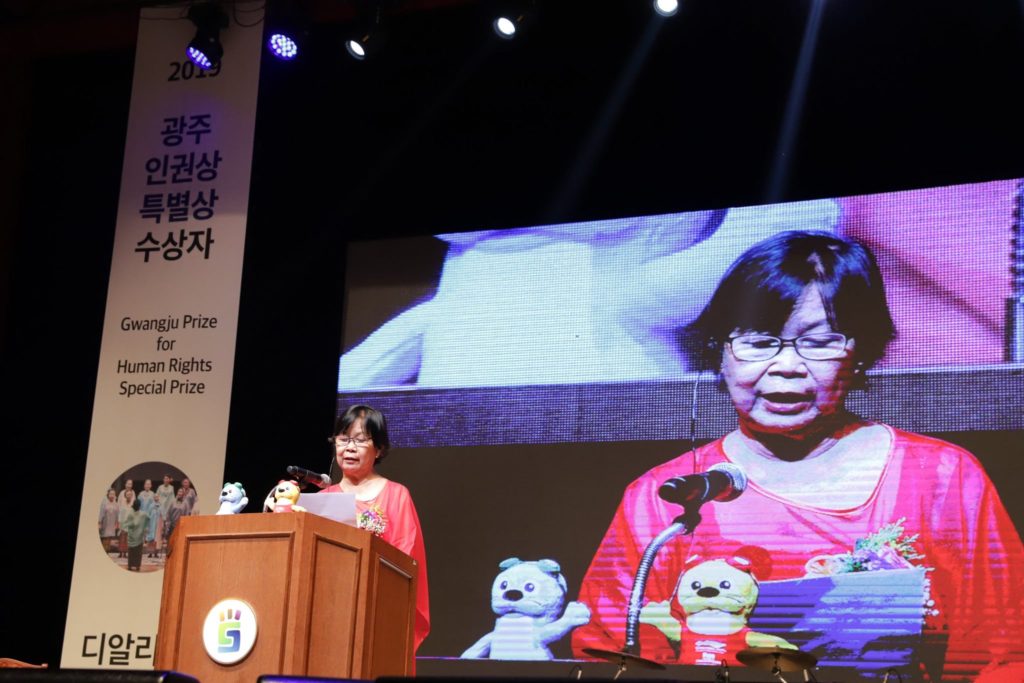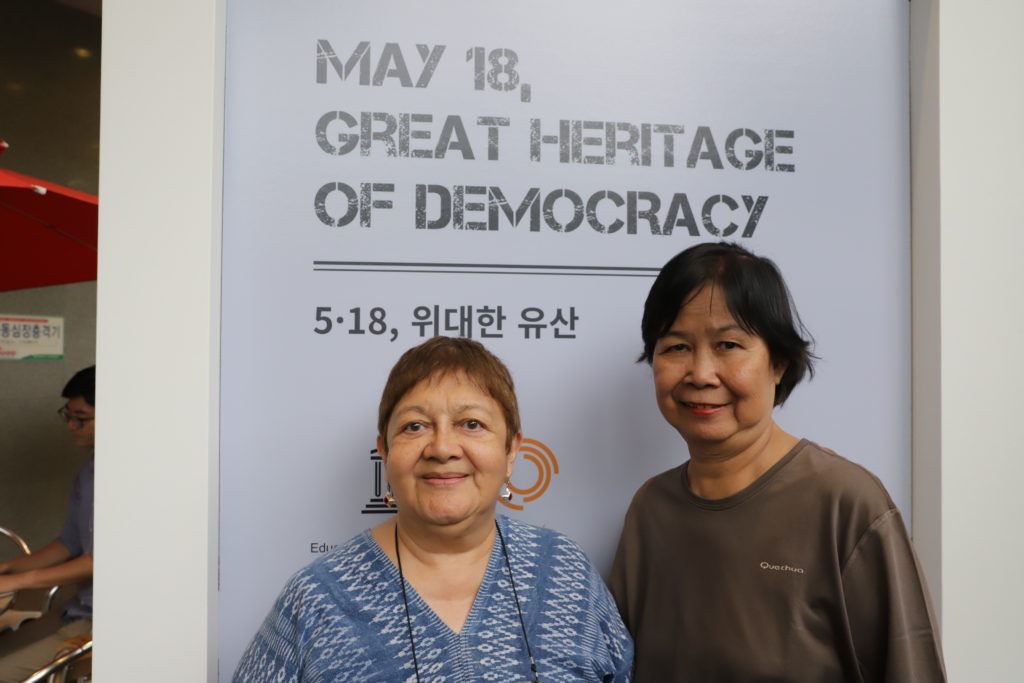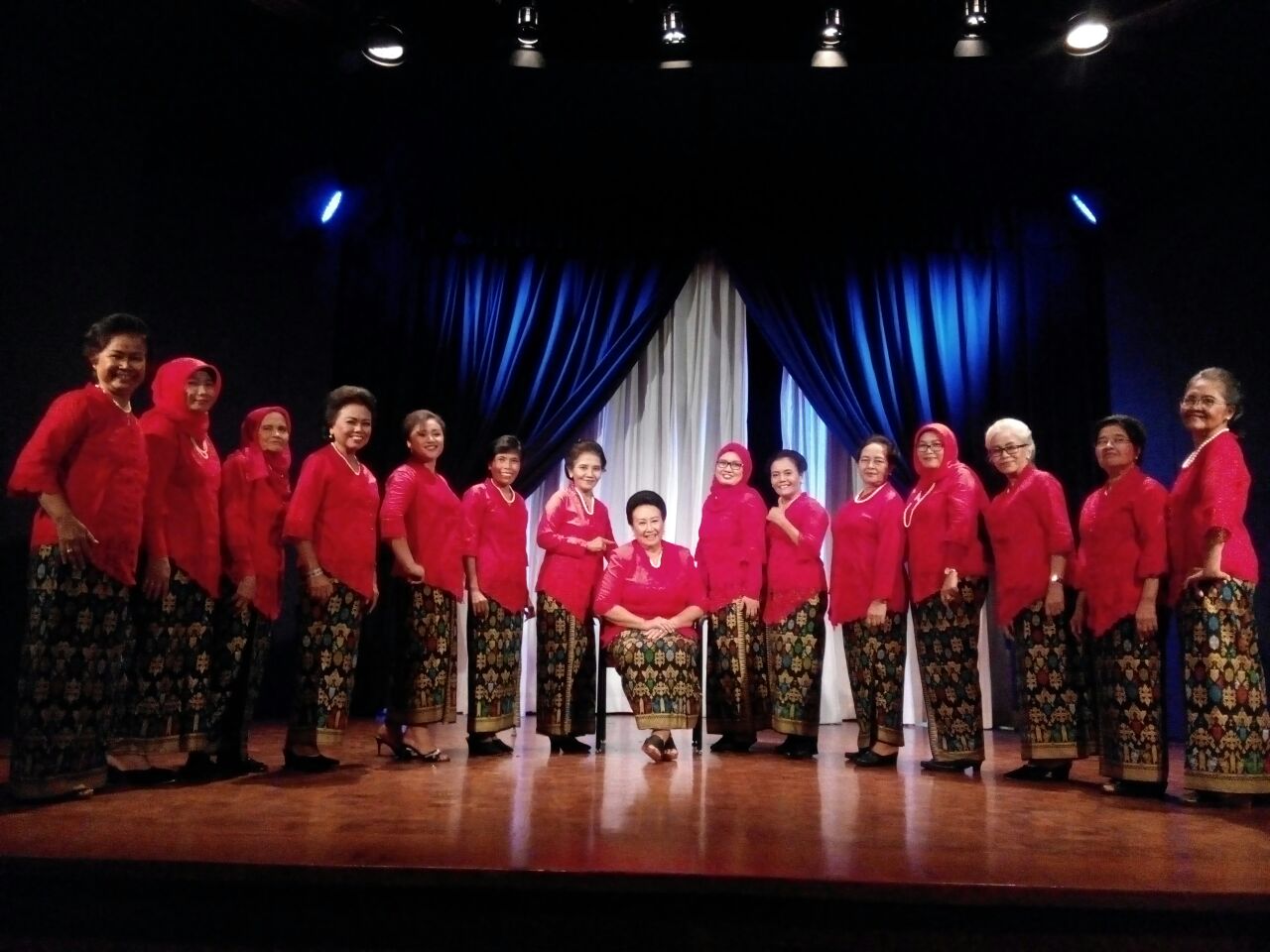The Dialita Choir: Healing Trauma and Unmasking the Truth Through Song
Written by Zico Mulia
In every armed conflict or massive violent event, women and children are among the most vulnerable victims. This was evidenced by the Indonesian Killings of 1965–66, which wiped out the lives of more than half a million people at the end of President Sukarno’s regime. The 1965–66 incident was considered one of the bloodiest and most controversial incidents in the country’s multifaceted history, one in which disseminating information, or even mentioning the slaughter in public, was not permitted.

In the face of threats and repression, a choir consisting of mothers, wives, and daughters of victims of the 1965–1966 mass killings has made waves in the country. Their name is Dialita (meaning “Di Atas Lima Puluh” or “Above 50 Years Old”) since all of the choir members are over fifty years of age and sing songs about the massacre and other dismal incidents that have ravaged Indonesia over the past five decades. Their melodious voices, heart-wrenching compositions, and mission have earned them this year’s Special Award of the Gwangju Prize for Human Rights (SPGPHR), an award bestowed by the May 18 Memorial Foundation to individuals or organizations who work for the improvement of human rights by means of journalism, music, culture and literature, or other creative forms.
Dialita Members’ Traumatic Story
“Children must separate from their parents; parents lose their children, husbands lose their wives, and wives lose their husbands,” said Uchikowati, one of the members of Dialita, in a speech delivered during the SPGPHR awarding ceremony last May 18. She vividly recounts the tragedy that left an unimaginable amount of trauma for her and her fellow choir members.

The incident, which was considered part of the military coup of General Suharto against then-president Sukarno, left trauma, stigma, and discrimination against the families of the victims to this day. Suharto eventually became the country’s leading strongman from 1967 until his resignation in 1998.
“The trauma continued to live with us, the 1965–66 victims’ families. And that haunts us all the time,” Uchikowati sai’d during our interview. She also said that when there are certain events, she and the victims’ families are fearful and become anxious because persecution of the 1965–66 victims and groups that tried to uncover the truth behind the tragedy has continued to occur in recent years.
Singing as Part of Trauma Healing and Revealing the Truth
Formed in 2011, Dialita currently consists of 20 members, two of whom were detained without trials during the authoritarian New Order regime from 1968 until the mid-1970s, and the 1965–66 mass killings victims’ families. Uchikowati herself, who was still a teenager during that time, was separated from her parents. Her father, a former mayor of Cilacap City in Central Java Province, was imprisoned for 15 years without trial. Likewise, her mother was imprisoned for seven years. Uchikowati explained that in 2011, they initially met with fellow family members of victims and survivors and, upon sharing their traumatic experiences and realizing their mutual passion for music, they decided to coalesce into a choir. “It turned out to be a relief,” she said while remembering those times. Before Dialita was formed, all members normally shied away from interacting with new people. However, as time passed by, the tension eventually eased and they opened up about their somber past. “When there was Dialita, meeting with new people became reinforcement for us,” said the 67-year-old.
The Dialita Choir first appeared in public in June 2012 during the launch of a 1965–66 mass killings book authored by a victim. Soon, the country’s National Commission on Violence Against Women invited them to perform at a fundraising event for female victims of state violence. “That’s where we started to get acquainted again, and we feel that someone wants to hear our voice even though our voices aren’t so good,” she said with a laugh. Up to the present, Dialita continues to perform across a number of stages and public spaces in several cities.

Dialita’s songs were composed by survivors and victims of the 1965–66 killings, including members of Dialita themselves. Their first album contains songs by victims and survivors who are both men and women, while the second album was solely created by female survivors. Both albums, which contain ten songs each, narrate poignant tales of mothers, children, and victims of the tragedy, as well as the turmoil and struggles of victims during that time. “We sang the songs because the stories in them would not be heard if Dialita were not voiced,” Uchikowati added.
Young artists, composers, and musicians were involved in the making of both albums. Dialita believes that with the help of younger faces, their songs can evolve as music to the ears of young people who know little about the 1965–66 killings. The choir’s collaboration with them bore fruit when 800 young people attended their 2017 concert in Jakarta.

The campaign effort of the elderly female choir group is increasingly widespread. Dialita has been invited several times to TV and radio shows. Prior to receiving the SPGPHR award in Gwangju, the choir guested on Kick Andy, a popular talk show in Indonesia, as part of their efforts to promote their second album.
Meaning of the Award and Dialita’s Hope
For Dialita, singing their songs was part of the recovery from trauma and the disclosure of the truth about the events of 1965–66. The SPGPHR award acknowledges Dialita’s work in the struggle for human rights and trauma healing through music. “This is an alternative to the struggle to address the cases of human rights violations in Indonesia that were previously carried out through advocacy, the political sector, and other fields,” she explains. The award also indicates that Dialita’s voices and musical influence have reached beyond the boundaries of Indonesia.
The habit of sharing and providing social assistance to victims had been carried out by some of Dialita’s members before Dialita was formed. They will donate a portion of the cash prize to the victims of the 1965–66 mass killings and are continuously raising funds for the medical expenses and social funds of the victims.

In addition, Uchikowati expressed her hope that the Indonesian government would recognize the past atrocities and provide reparations for the victims and their families. “We ask the State to acknowledge that the 1965–66 events have taken place, which claimed many victims and leave trauma up to now,” she concluded, elucidating that the government’s recognition of the tragedy would change the doubts and misconceptions of people and prevent the recurrence of brutal human rights violations in the future.
Someday, Indonesia can replicate Gwangju, a city that recognizes the sacrifices of martyrs, provides ample reparations to survivors, and maintains collective memories of the May 18 Uprising and other violent incidents in the past.
Photographs courtesy of Dialita Choir and Kyounghun Choi (The May 18 Memorial Foundation)
The Author
Zico Mulia is a master’s degree student at Chonnam National University majoring in interdisciplinary NGO studies. He has worked for NGOs in the field of human rights and democracy in Indonesia for more than a decade. He is also the vice-president of the Indonesian Students Association in Korea and is actively involved in a number of cultural and socio-political activities in Gwangju and all over Korea.







